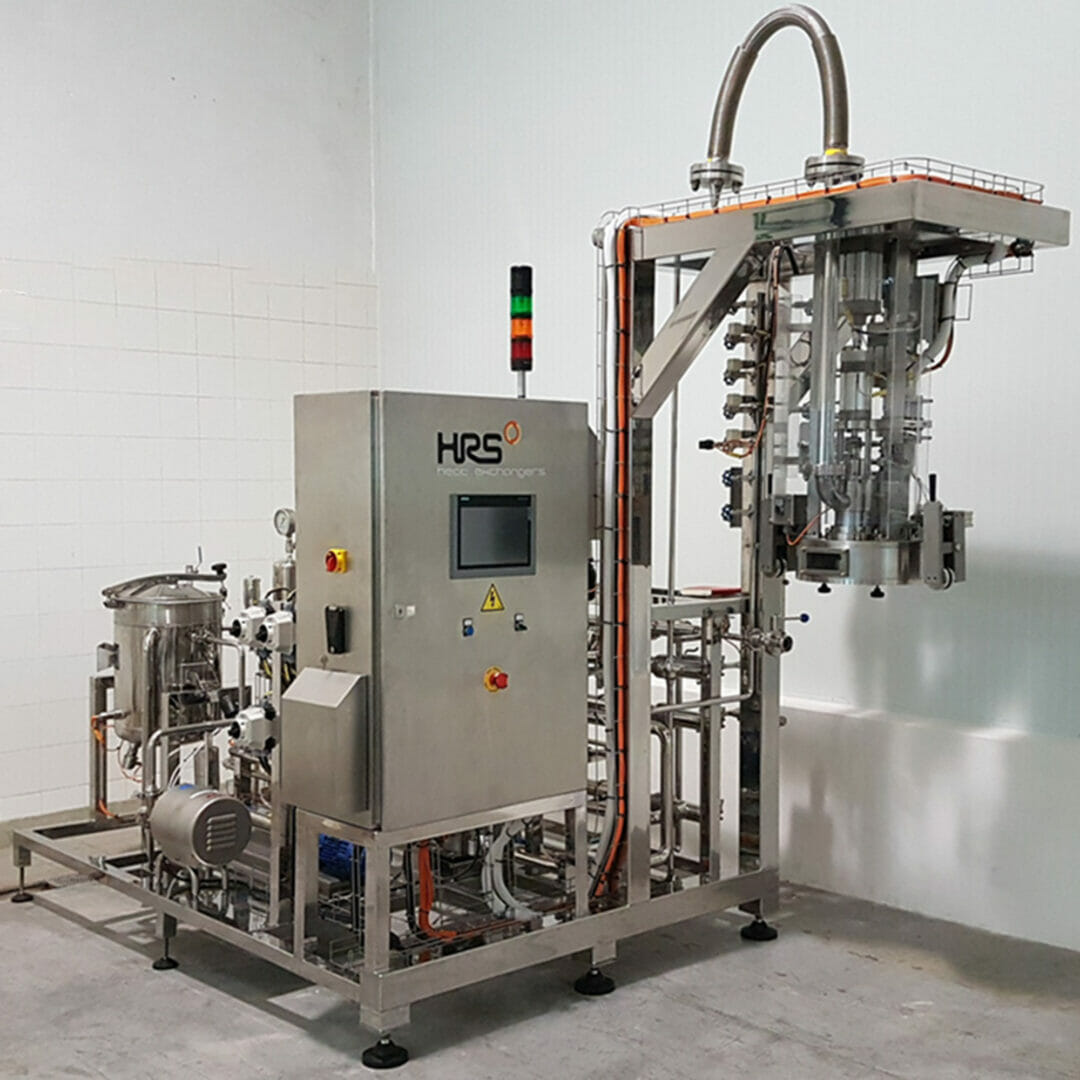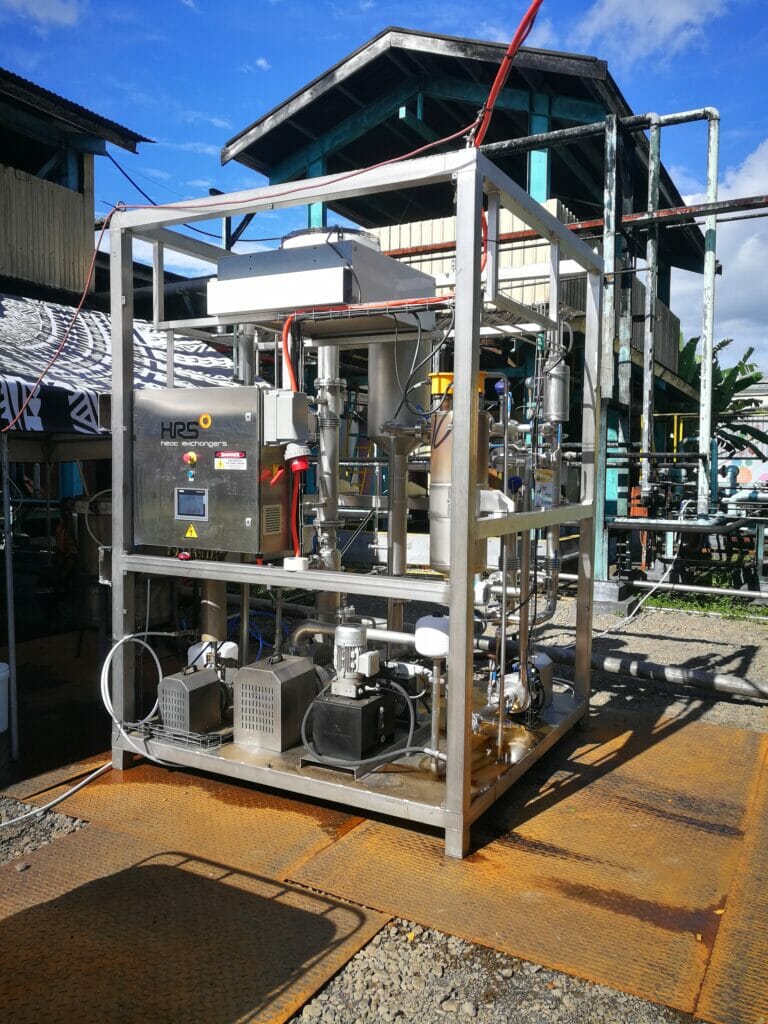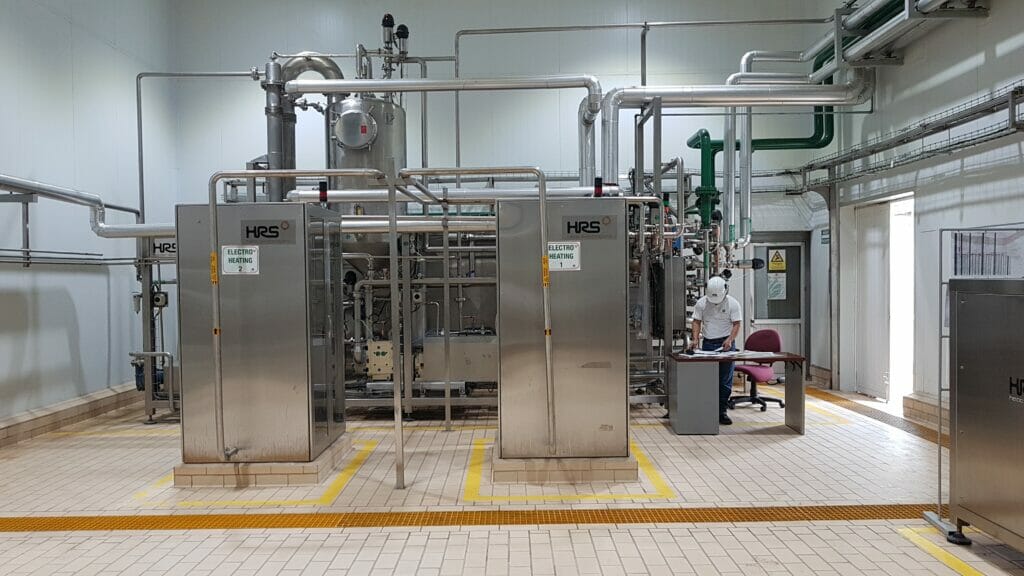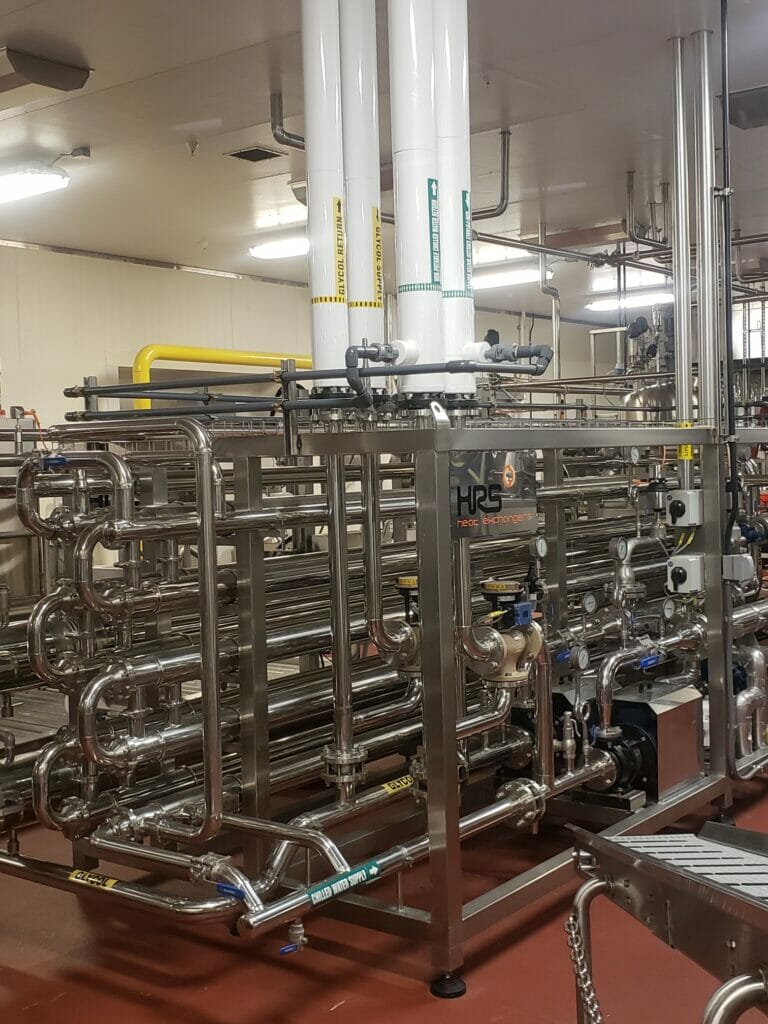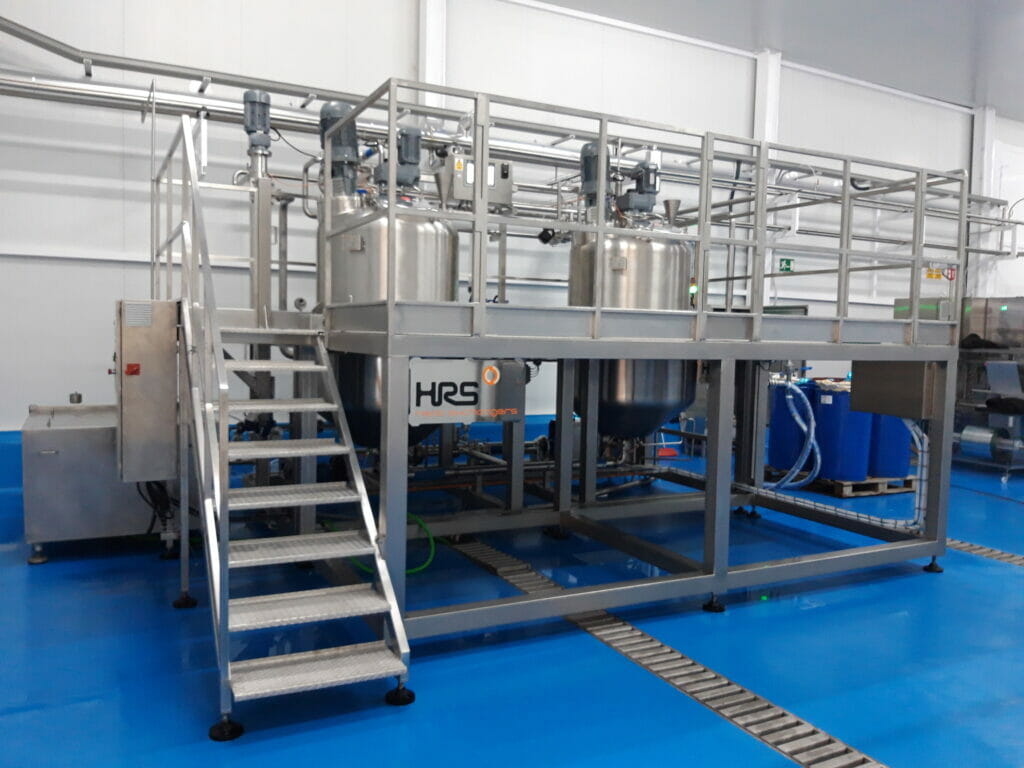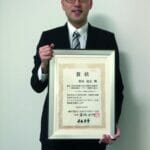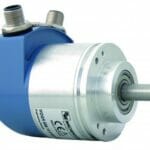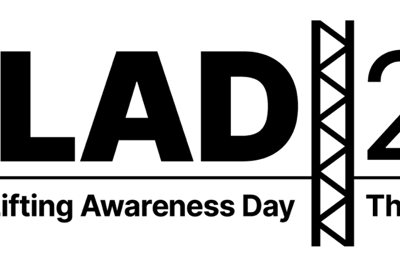By Matt Hale, International Sales & Marketing Director, HRS Heat Exchangers
Modular process skids have become popular in the food industry due to their ease of transportation and installation. HRS Heat Exchangers has produced skid-mounted versions of numerous products and systems, for a wide range of applications including pasteurisation, cleaning in place (CIP), aseptic packing, heating, and cooling to name a few.
What is a modular process skid?
A modular process skid is a processing system which is contained within a frame, making it easier to transport and install. Individual skids can contain anything from a single heat exchanger and ancillaries to complete and complex systems where the skid typically contains process equipment, controls and monitoring equipment, and ancillaries.
Process skids provide a ‘plug & play’ solution and multiple skids can be combined into larger systems. For example, a food pasteurisation and filling system may contain separate skids for the pasteurisation heat exchanger, the cooler, filler, and additional heat recovery heat exchangers.
Benefits of process skids
Some of the reasons that process skids have become so popular include:
- Ease of installation. Because the system is built at the manufacturer’s factory, once it arrives on site it usually only needs connecting to the existing infrastructure and services, with a minimum of in situ assembly. This also reduces the disruption and down time required when the skid is installed.
- Quality of construction – Fabricating the skid in the workshop means that all aspects of production can be controlled. It is not dependent on vagaries such as weather conditions or working around the client’s existing production schedules. Therefore, no compromises are needed in terms of welding technique or the order of assembly.
- Ease of transport – With everything contained in a single unit, transport to the site becomes much easier. It also creates the potential to move smaller skids between production lines or operating sites.
- Small footprint – By layering key components, skids can be made to a specific size and the overall footprint can be kept to a minimum.
- Testing and approval – Factory acceptance testing (FAT) can be completed by the manufacturer before the skid is shipped to the client, helping to reduce start-up and commissioning times.
These numerous advantages deliver customer benefits in terms of saved time and money. In addition, process skids provide a combination of flexibility and robustness compared to traditional on-site building methods. Skids can be supplied in multiple sizes, from a typical 1×1.2 m pallet, up to a full 2.43 x 12.2 m shipping container.
Examples of HRS process skids
HRS is experienced in producing skids for food and beverage use using high quality stainless steel and frequently supplies systems built around process skids. Some recent examples include:
- An orange juice pasteurisation system for a Mexican company which is comprised of a series of skid-mounted units which together form a turnkey pasteurisation, cooling and aseptic filling solution.
- Spanish social enterprise Nutripeople turns surplus fruit and vegetables into finished highly nutritional food pouches for use by organisations such as UNICEF and Oxfam. HRS provided the company with a new production line which includes tanks, mixers, pumps, a homogeniser and R Series scraped-surface heat exchangers for pasteurisation. These elements were supplied on process skids which were combined into a finished production line at Nutripeople’s factory in Murcia.
- Ready Foods, a US food company producing sauces and marinades commissioned a turnkey cooling system to process up to 90 tonnes of marinade a week. The solution included pumps, a pre-cooler for the cooling water, two Unicus Series heat exchangers to cool the product, as well as valves, controls and a cleaning-in-place (CIP) system. Key elements were supplied on process skids to facilitate quick installation and ease of operation.
- The HRS AF Series of aseptic fillers are supplied skid mounted as standard.
- HRS has a range of trial units from heat exchangers to pilot plant evaporation skids, which are available for clients to prove the suitability of a particular model or technology prior to full system design. These are all skid mounted to enable easy transportation and quick set up on site.
Whatever type and size of system you require, talk to us today about how skid mounting your process solution can save time and make installation and operation easier.
- A skid-mounted HRS trial evaporation system in use at a client’s facility
- This orange juice pasteurisation system for a Mexican client consists of a number of process skids
- This skid-mounted pre-cooler consists of 10 HRS AS Series heat exchangers
- The process skids to create a new production line for Nutripeople were connected on site

